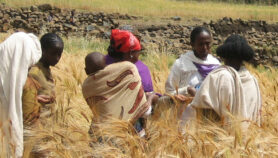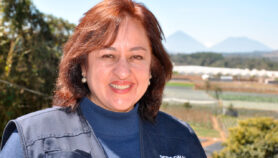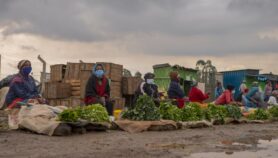By: Li Jiao
Send to a friend
The details you provide on this page will not be used to send unsolicited email, and will not be sold to a 3rd party. See privacy policy.
[WUHAN] A growing perception that the Chinese public is uneasy about genetically modified (GM) crops has led to a roundtable dialogue on GM crops between scientists and the general public.
Scientists who participated in the dialogue — held on the sidelines of the Communication and Dialogue of Agribiotech Symposium at Huazhong Agricultural University in October — said it was the first time they had been made aware of the extent of the public’s fears.
Public opposition to GM crops has been growing since the Ministry of Agriculture issued safety certificates for two kinds of GM rice and one type of GM maize in November 2009. Local media reports following the ministry’s decision were especially concerned with the unknown health effects of GM crops.
The dialogue was set up by Jia Hepeng, organiser of the symposium and editor of the Chinese Academy of Sciences’ (CAS) bi-weekly magazine Science News, to address some of the questions that delegates had been raising during the symposium.
One delegate was concerned after watching a US television programme that mentioned a child who had died apparently after consuming food containing GM maize. Another mentioned a Chinese news story that reported that Yuan Longping — regarded as the ‘father of hybrid rice’ in China — had said there was a chance that GM rice could be harmful to health.
Yang Xiaoguang, a researcher at the Chinese National Institute of Nutrition and Food Safety, said that such media reports were partly to blame for the public’s fears.
Another scientist, Zhu Zhen, at the Institute of Genetics and Developmental Biology of CAS said he did not believe the conclusions of the television programme. "If such serious things were happening [GM] would be forbidden by the US Food and Drug Administration and the repercussions would be very serious."
Zhu added that there was no such thing as absolute food safety and that even potatoes and haricot beans, for example, contained certain toxins.
He said that while scientists answered each question carefully at the dialogue, it was "impossible" to answer the public’s concerns after just one event and called for more events where the public and scientists could meet and have an open dialogue.
"This kind of communication is very important for us," said Zhu. "We would like to open the door to the general public."
Jia said that he plans to promote more dialogue on GM among scientists, media and the public.













